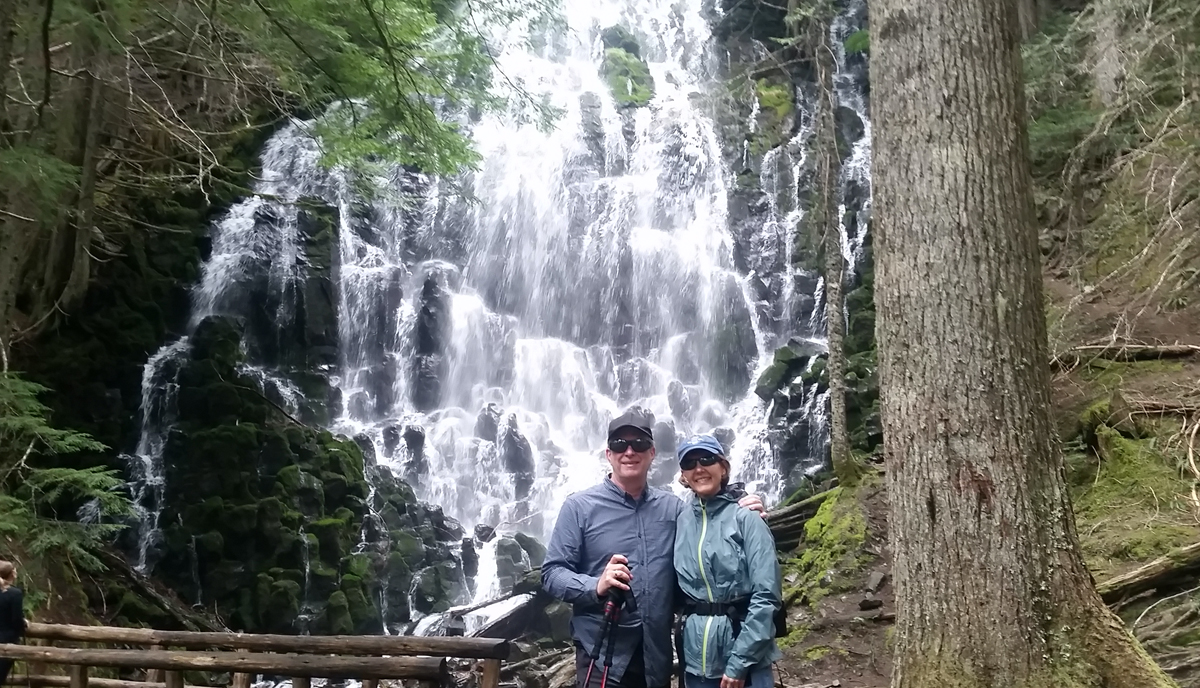(Special note: If you have been hit by the current shutdown, my newest book, The Doctors Guide to Navigating a Financial Crisis, will help you find your way back to financial health. Watch for it to come out in mid-May)
I have read many articles discussing how the first big drop in the market would spell the end of the FIRE movement (Financial Independence/Retire Early). Lately many people are saying the FIRE movement is now dead after the recent market crash. So I decided to look closely at what the recent downturn has done to my FIRE, thus not discuss theoretical examples, but my real life example.
I don’t care to share actual numbers, but I will give percentages so you can get a good feel for how my life might have changed with the recent pandemic issues. Also, I will leave out any effect my books, coaching, speaking and website has had on my economic status, lest someone think I was not being fair to my FIRE results by still earning income. Since we have recorded our monthly income and expense, and quarterly net worth for the last 26 years on an Excel spreadsheet, these numbers were easy to find.
I retired from my twenty year medical practice in December of 2013 at the age of 51. At that time, I had not heard of the FIRE movement, I merely followed the plans I had laid out in medical school which had me retiring at age 50. You can read the entire story with all the details of my retirement in chapter two of The Doctors Guide to Smart Career Alternatives and Retirement.
At the time I retired from my full-time medical practice, I stopped making 401(k) and IRA contributions. I also started working locum tenens part-time in critical access hospitals in rural America. Those three years turned out to be a great way for me to slow down my pace gradually and not go from full-time practice to nothing all at once. (If you are considering locums, get my online course The Doctors Guide to Thriving in Locum Tenens). During the last seven months of locums I worked one week a month at a 25 bed hospital only covering emergencies. In February of 2017 I saw my last patient and left medicine completely.
This is when we started living off our retirement funds. Although we had good income coming in from our real estate investments, we wanted to play it safe, being sure we had enough to spend on our retirement travel plans. So, we started taking income from my retirement plans in 2018. We used the government instructions for taking retirement money before age 59 ½ without penalty which is rule 72(t), Substantially Equal Periodic Payment or SEPP. Thus started our 4% annual withdrawal from our retirement plans. I wrote a guide for using rule 72(t), you can read it here.
My Qualified Retirement Funds
We have money in a 401(k), a deferred compensation plan, an HSA (Health Saving Account) and traditional IRAs for each of us. The last year we deposited money into our retirement accounts was 2013, the year I retired from my medical practice. (We did, however, make an HSA deposit in 2014 and 2015.) In 2018, one year after I stopped working altogether, we began taking our annual SEPP withdrawals, 4% of the total amount of all our retirement account values. Currently, we have taken two of those distributions. Therefore, we have removed 8% from the accounts at this point. We will take our third distribution in August of this year.
Despite having removed 8% of the account balance in the last two years, our January 1, 2020 retirement accounts value had increased since I retired. But no one cares about that. The real question is, where does it stand after the crash? Between Jan 1, 2014, when I retired, and April 1, 2020 my retirement plan balance is down 9.7%. The net effect of the crash, eliminating my annual withdrawals, is 1.7% (9.7% – 8%). The money for the next three withdrawals is safely in CDs that come due at the time of the annual withdrawals, so I will not need to sell any mutual funds while the market is down to make my required distributions.
Bottom Line: The market crash essentially took my retirement account balances back to their value at my retirement date less the 8% I have harvested.
My Real Estate Investments
This is the real cornerstone of my FIRE plan. The Qualified Retirement Funds are just gravy. I stopped purchasing real estate in 2007 when I figured I owned enough to cover my retirement expenses. That means my entire real estate portfolio took the 2008 hit as well.
People are the most interested in the net worth of real estate properties, but that is actually not a helpful number as I live on the cash flow, not the equity. But to satisfy that itch, the equity value of my investment real estate has gone up by 231% in the last six years since I left my practice.
When I compare my cash flow from the 2014 tax year, my first year retired, to my cash flow from 2019, there had been a 39% increase. The cash flow is growing with time, as it was predicted to do. In April, everyone paid their rent. So far I have seen no effect on my real estate cash flow from the pandemic shut down. I attribute this to buying housing for seniors age 55+, which make up 78% of my residential holdings. Those who are living on their social security and retirement accounts still have money coming in to pay their rent. I have also not seen any change in my commercial holdings, which is a minor part of my real estate.
The most important factor in FIRE is how the cash flow relates to my living expenses. After all, passive income falling below living expenses is what would end my retirement and make me go back to work. In 2014 my real estate cash flow exceeded my living expenses by 7%. In 2019 it exceeded my living expenses by 45%. This is the effect of paying down mortgages and rent increasing over time. So far in 2020, I see no drop in cash flow. But being confined to my home and no longer traveling, my living expenses have dropped considerably. So, during this pandemic, I am actually better off financially than before, when I spent a lot of money traveling.
With a 45% cushion of real estate cash flow, a large emergency fund, and the ability to curtail our travelling if needed, we would have no problem weathering this crisis if a large portion of our tenants could not pay the rent.
Bottom Line: I have not seen an effect on my real estate investments and they produce more cash flow now than when I retired.
Total Retirement Income
This is the key number to maintaining FIRE. Total retirement income must exceed living expenses to stay successfully on FIRE. We have other income besides real estate and retirement plans. For example, during the first few years, I was getting buyout payments from selling my practice to my partners. Those payments have now come to an end. Four years from now I will also be eligible to start collecting social security payments if I choose.
The first year of retirement, while I was still working part time, my total income was 3.15 times my expenses. I had plenty of money coming in with a lot of cushion. During 2019, my total income (excluding the businesses I stated earlier) was 2.55 times my expenses. So, during that time our non-retirement savings account has increased, enabling us to withstand some extra down months.
So far our income does not seem to be affected by the pandemic shutdown and market drop. Expenses on the other hand have dropped during this crisis. We are not going out to eat, not going shopping and we stopped traveling. We have two trips already paid for that have been postponed so they will be less expensive when we eventually take them.
If my income dropped, so would my taxes. If my income dropped to my living expenses, my tax bill would likely drop to very close to zero due to my real estate depreciation.
Bottom Line: With tax considerations, our passive income would need to drop by 72% before it would fall below our living expenses and trigger the need to either cut some expenses, earn more income, or spend some savings.
Net Worth
Net worth is a number that is nice to look at but doesn’t mean a lot since we don’t spend the net worth. Between Jan 1, 2014 and April 1, 2020 our net worth is up 38%. Values have increased nicely in the years before the crash so that the crash did not wipe out all the gains we made. Every crash sets you back a few years but doesn’t wipe everything out. After the crash it all goes back to growing again.
Conclusion
When I pulled the trigger to retire in my early 50s, I made sure I had plenty of cushion. One never knows what the future will bring for your investments. I also had several different sources of income. If you FIRE with barely enough to get by, you might be in trouble if a market crash happened the next day. On the other hand, the next day you could go back to work. Don’t pull the trigger with FIRE until you are comfortable that your passive income will take care of you even in a market downturn.
No, my FIRE experience is not stopped by this market crash. In my case, the crash created very little ripple effect on my plans, because I am not dependent on income from a job. The group who had the greatest impact from the shutdown was not those in the FIRE movement, it was the people who lost jobs and did not have adequate savings to support themselves during this trying time. If you have chosen to live paycheck to paycheck, times are tough right now. If you are working towards FIRE, you will actually have money saved to get you through a financial crisis like the one we have now, as well as a big cushion between your expenses and your income. The FIRE movement is great insurance against a down turn of the economy because if you are planning to FIRE, you have money in the bank. And cash is King!






I skinny FIREd in 2012. I had a couple major busts in my portfolio just before and the because of COVID-19. I thought I was basically no longer FIRE. I stepped up plans to find a part time job for a non-profit (an idea I hatched before COVID-19 just to get out of the house more) as a couple hundred bucks a week would make a huge difference.
In early May, I’ve found a side hustle good for about 125 a week. I’ve been able to make the best of the market volatility by selling options for income. I took an early distribution from my tIRA prop up my taxable earning power. (That was always an emergency value per plan). I now think I’m still FIRE without the part time gig. That is, at 47 I can still at a minimum limp to SS eligibility.
Glad you found a way to make it work
Great article! You planned well with multiple sources of income. One aspect of real estate that makes it a great buffer to the traditional retirement savings account is that it usually increases in value (i.e., appreciation and debt paydown) over time while cash flow increases. This is contrary to the traditional retirement savings account, which usually decreases in value when you increase withdraws to keep up with inflation. Your article made that point clear to me and gives credence to the investment strategy.
Vincent, yes it has been clear to me that real estate far out performs my retirement accounts invested in the stock market.